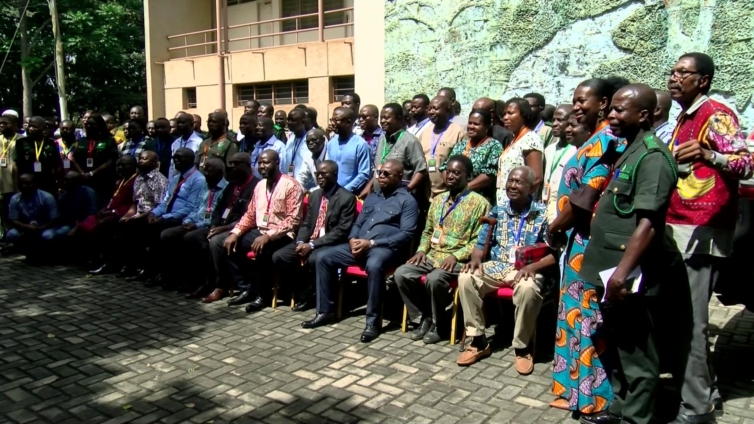Over 800 Illegal Miners Arrested in Ghana’s Forest Reserves Amid Growing Concerns
Saturday, 30 November 2024 | Ghana

The Forestry Commission has reported the arrest of over 800 illegal miners since 2023 as part of a concerted effort to combat the damaging effects of illegal mining in the country’s forest reserves and water bodies. This action, led by a joint security taskforce, aims to address the widespread destruction caused by illegal mining activities, which have devastated large swathes of forest and polluted vital water sources.
John Allotey, the Chief Executive Officer of the Forestry Commission, reiterated the government’s commitment to fighting illegal mining, noting that the renewed crackdown has led to a noticeable reduction in these activities. The taskforce, which includes officers from the Forestry Commission and the military, has successfully apprehended hundreds of illegal miners and dismantled illegal structures within protected forest areas.
“We have arrested over 800 illegal miners, demolished several illegal structures in forest reserves, and confiscated vehicles through the courts,” Allotey stated during his address at the 27th annual general meeting of the Ghana Institute of Foresters. He expressed optimism that these measures, supported by a rapid response team, would continue to reduce the illegal mining threat.
Despite these efforts, the Ghana Institute of Foresters has voiced concern over the government's failure to adequately recognize their contributions to addressing the issue. The Institute has called for a more collaborative approach, urging government officials to engage more deeply with stakeholders, including academia and researchers, to find comprehensive solutions.
Illegal mining activities have left deep scars on Ghana’s environment, with over 2.5 million hectares of forest cover lost and several water bodies severely damaged. The destruction has prompted calls for an immediate halt to all mining activities in forest reserves.
Allotey proposed two potential solutions to curb the environmental damage caused by illegal mining. He suggested a complete ban on mining in forest reserves and alluvial mining, with limited exceptions for hard-rock mining when significant socio-economic benefits can be demonstrated. However, he emphasized that the second option, which allows for responsible mining, may be more practical.
On the other hand, the Ghana Institute of Foresters, represented by President Dr. Abukari Atta Nantongmah, expressed frustration over the government’s lack of action on reafforestation after mining activities. They stressed that without strong policies for post-mining rehabilitation, the environmental damage will persist.
Dr. Nantongmah stated, "People are given licenses to mine, but after mining, who cares about reafforestation? We are unhappy the government has failed to heed our opinions, and we could offer many solutions to end this menace."
As the situation remains critical, both government officials and environmental stakeholders are calling for a more unified and effective response to preserve Ghana’s forests and water bodies for future generations.


 How to resolve AdBlock issue?
How to resolve AdBlock issue?